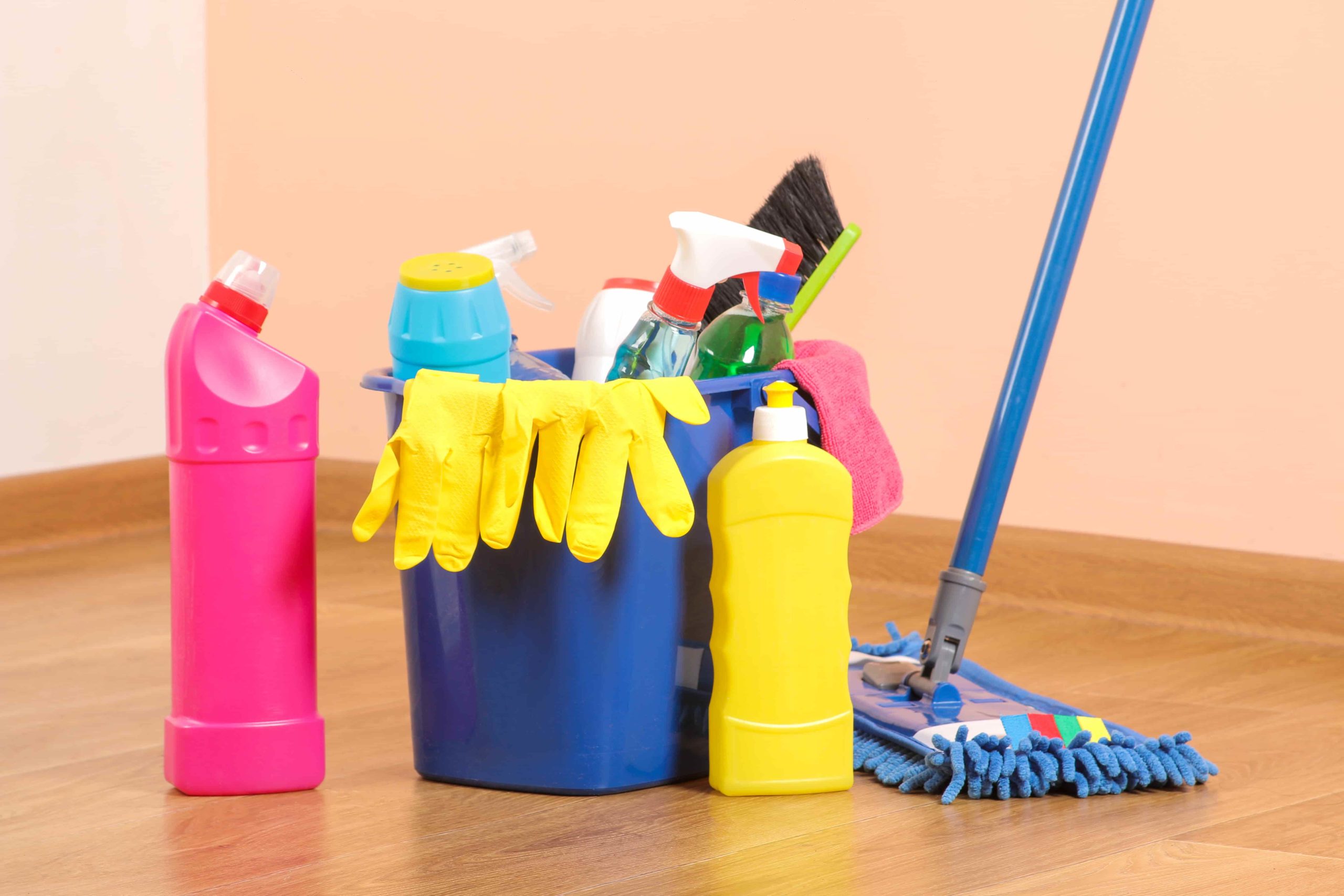Asset Publisher
Helping an Older Loved One with Housekeeping
09/14/2020

We should empower a loved one to continue doing the household tasks they are still capable of doing by trying different strategies that allow them to stay both safe and independent
If we are providing care for an older loved one who lives in their own home, chances are good that they will want to stay there for as long as possible. According to a United States of Aging survey, around nine in 10 older adults prefer to age in place in their current homes, and studies show that doing so can have a positive impact on the quality of life, self-esteem and financial stability of older adults.
However, home upkeep may become a challenge for a loved one as they age, especially if they have mobility issues. Increased time at home due to COVID-19 may also mean that things around the house may become cluttered or pile up at a faster rate than normal, and it can get difficult to keep up with.
As caregivers, we may need to step up and lend a hand with keeping the household tidy, especially if clutter becomes a tripping hazard or important areas of the house such as the kitchen or bathroom are becoming unsanitary. However, we should also be sure to empower a loved one to continue doing the household tasks they are still capable of doing by trying different strategies that allow them to stay both safe and independent.
Here are some techniques and products that can help the loved one we care for overcome challenges to maintain their home and independence:
1. We can start by helping a loved one stay organized by placing commonly used items in easy-to-reach places to avoid bending low or overreaching. For items that may need to remain on higher shelves for storage purposes, there are grabber tools designed for older adults that a loved one can use to access out of reach items when they are needed.
2. If a loved one has a particular day when they take care of household chores, we might want to encourage them to space their chores out over the course of the week so they don't overexert themselves.
3. There are a wide variety of cleaning tools on the market specifically designed for people with physical disabilities or mobility issues, such as:
- Tools with wide-grip handles. These may be easier for a loved one to grasp, especially if they have arthritis in their hands.
- Long-handled or telescoping scrub brushes and dusters. These can help a loved one avoid stooping, bending and climbing to reach areas in need of cleaning.
- Bucket-less mops. These can make cleaning tiles and hardwood floors easier on the body.
- Footstools that come with a safety handle. These can help a loved one maintain their balance and decrease their chances of falling.
- Folding carts with wheels. These can make it easier to transport cleaning products and other items from room to room.
4. If the loved one we care for lives in a two-story home, we should make sure there is a separate vacuum cleaner for each story. Along with removing the strain and potential over-exertion from carrying a heavy vacuum up and down stairs, this also decreases the risk of a fall.
5. It can also be helpful to have a loved one write down the small tasks that need doing, so we or other family members can see if we can complete them when we visit. Some home care and other agencies also offer assistance with light housekeeping if a loved one needs a bit of additional help.
While it’s important for a loved one to maintain independence when it comes to housekeeping, we should still monitor the situation to make sure they are able to complete different tasks safely. Loved ones with memory loss may need special tools or precautions to keep certain areas of their homes like the kitchen safe, and may need to give up certain tasks like cooking altogether in the later stages of the disease. We should also make sure they are not neglecting the home or engaging in potentially dangerous hoarding behaviors. If a loved one seems to be amassing a large amount of possessions and is reluctant to throw items away, we can look into local and national resources to find them support.
A version of this article appeared in the Private Health News.
Related Assets
Suggested Reads
3 Ways to Help an Older Loved One With Spring Cleaning
With the arrival of spring comes the season of cleaning, decluttering and organizing the household. If we are caring for an older loved one, giving them a hand with their annual spring cleaning may not only make for a meaningful Easter gift, but can also help ...
6 Tips to Help a Loved One Cook Safely
As we age, the possibility of accidents happening in the kitchen goes up dramatically. According to the Federal Emergency Management Agency, people over the age of 65 have a 2.5 times greater risk of dying in a kitchen fire than the general population. Our old...
Keeping the Kitchen Safe for a Loved One with Late Stage Dementia
The kitchen is the heart of most families' homes. If we have a loved one living with dementia at home, especially in the later stages, we will want to do everything we can to help keep their kitchen as safe as it can be.
